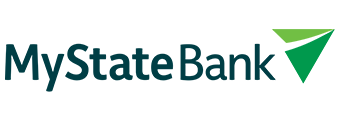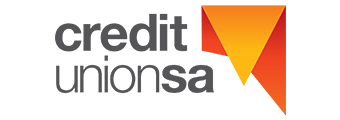Looking for a home loan?
Buying a home or looking to refinance? The table below features home loans
with some of the lowest interest rates on the market for owner occupiers.
Lender | |||||||||||||
|---|---|---|---|---|---|---|---|---|---|---|---|---|---|
| Variable | More details | ||||||||||||
| FEATURED | loans.com.au – Variable Home Loan P&I <90%
| ||||||||||||
Disclosure | |||||||||||||
loans.com.au – Variable Home Loan P&I <90%
Disclosure
| |||||||||||||
| Variable | More details | ||||||||||||
| FEATUREDBuilt and funded by CommBank | Unloan – Variable Rate Home Loan LVR < 80%
| ||||||||||||
Disclosure | |||||||||||||
Unloan – Variable Rate Home Loan LVR < 80%
Disclosure
| |||||||||||||
| Variable | More details | ||||||||||||
| FEATURED100% offset | Ubank (part of NAB) – Flex variable home loan - 100% offset
| ||||||||||||
Disclosure | |||||||||||||
Ubank (part of NAB) – Flex variable home loan - 100% offset
Disclosure
| |||||||||||||
| Variable | More details | ||||||||||||
| FEATUREDUp to $2k cashback (T&Cs apply) | Regional Australia Bank – Home Loan without Offset - OO,PI LVR 60% or less
| ||||||||||||
Disclosure | |||||||||||||
Regional Australia Bank – Home Loan without Offset - OO,PI LVR 60% or less
Disclosure
| |||||||||||||
| Variable | More details | ||||||||||||
Macquarie Bank – Offset Home Loan (Owner Occupier, Principal and Interest, max LVR 60%)
| |||||||||||||
Disclosure | |||||||||||||
Macquarie Bank – Offset Home Loan (Owner Occupier, Principal and Interest, max LVR 60%)
Disclosure
| |||||||||||||
| Variable | More details | ||||||||||||
IMB Bank – Budget Home Loan (Principal and Interest) (LVR 90%-95%) | |||||||||||||
| Variable | More details | ||||||||||||
Disclosure | |||||||||||||
Ubank (part of NAB) – Neat home loan - max. 60% LVR (Owner occupied, Principal and interest)Disclosure
| |||||||||||||
| Variable | More details | ||||||||||||
ME – CompleteME Home Loan - LVR 60% to 80% - $150,000 to $400,000 | |||||||||||||
| Variable | More details | ||||||||||||
Heritage Bank – Home Advantage Variable $150,000 to $249,999 LVR >80% to 90% | |||||||||||||
| Variable | More details | ||||||||||||
Disclosure | |||||||||||||
Commonwealth Bank – Wealth Package Variable Home Loan (Principal and Interest) (LVR 80% - 90%)Disclosure
| |||||||||||||
| Variable | N/A | More details | |||||||||||
P&N Bank – Basic Variable Home Loan >90% and =<95% | |||||||||||||
| Variable | More details | ||||||||||||
Great Southern Bank – Offset Variable - Owner Occupier Principal & Interest (LVR is above 80% and less than or equal to 90%) | |||||||||||||
| Variable | More details | ||||||||||||
Disclosure | |||||||||||||
Ubank (part of NAB) – Neat home loan - max. 80% LVR (Owner occupied, Principal and interest)Disclosure
| |||||||||||||
| Variable | More details | ||||||||||||
Disclosure | |||||||||||||
Macquarie Bank – Offset Home Loan (Owner Occupier, Principal and Interest, max LVR 80%)Disclosure
| |||||||||||||
| Variable | More details | ||||||||||||
| FEATURED | loans.com.au – Variable Home Loan with Offset P&I <90%
| ||||||||||||
Disclosure | |||||||||||||
loans.com.au – Variable Home Loan with Offset P&I <90%
Disclosure
| |||||||||||||
| Variable | More details | ||||||||||||
Bank Australia Limited Trading as Qudos Bank – Qantas Points Home Loan (Owner Occupied) (PI) (LVR <80%) 10-20% | |||||||||||||
| Variable | More details | ||||||||||||
AMP – Essential Home Loan (Owner Occupied, Principal and Interest, $250,000+ <= LVR 90%) | |||||||||||||
| Variable | N/A | N/A | More details | ||||||||||
Disclosure | |||||||||||||
Westpac – Flexi First Option Home Loan (Principal & Interest LVR 70-80%) (Promo)Disclosure
| |||||||||||||
| Variable | More details | ||||||||||||
Bank of Queensland – Clear Path Variable Rate Home Loan Discount Rate (max 90% LVR) | |||||||||||||
| Variable | More details | ||||||||||||
Suncorp Bank – Home Package Plus Personal Variable First Home Buyer Special (Principal and Interest) ($150k+, LVR 80%-95%) | |||||||||||||

- Available for purchase or refinance, min 10% deposit needed to qualify.
- No application, ongoing monthly or annual fees.
- Quick and easy online application process.
Important Information and Comparison Rate Warning
Important Information and Comparison Rate Warning































